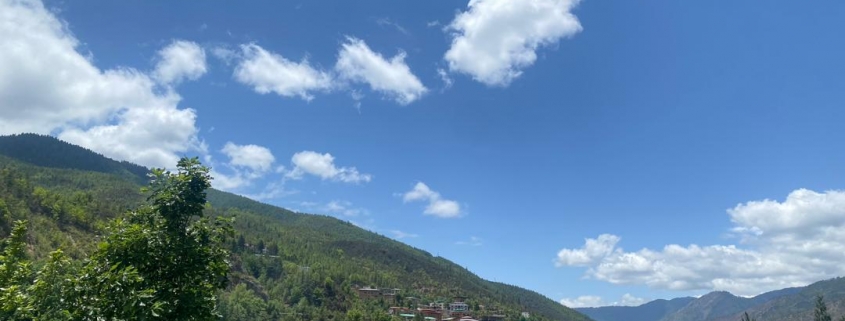Bhutanese summer
It’s officially summer in Bhutan!
In the temperate valleys, where most of the populations resides, summer is a time of lush green landscapes, blue skies and bright sunshine, the occasional showers and light clothing.
In this last remaining vajrayana Buddhist kingdom, hidden in the eastern Himalayas, the change of seasons is marked by a centuries-old tradition—the migration of the central monk body, the Zhung Dratshang.
On an overcast morning of May 8, corresponding to the 30th day of the third month of the Wood Male Dragon year of the lunar calendar, the central monastic body left its winter residence in Punakha for the cooler climes of Thimphu, the capital, where it will reside through summer and autumn at the 17th century Tashichhodzong.
The entourage arrived in Thimphu the next day after a night halt in nearby Semtokha Dzong, to large crowds of entire families lining the highway, eagerly waiting to welcome and receive blessings from the chief abbot and sacred relics.
Travelling from Punakha to Thimphu is today a few hours journey by road, but in keeping with a tradition established in the 17th century by the country’s founding father, Zhabdrung Ngawang Namgyel, who set up the monastic body, built a chain of fortresses and unified the country, the procession takes a night and two days to reach its destination, allowing people along the way to make offerings and receive blessings.
The arrival of the monastic body to Thimphu also coincides with the start of the holy month of Saga Dawa, the first day of the fourth month of the lunar calendar, which celebrates Buddha’s birth, enlightenment and Parinivana. Consumption of meat is discouraged during this month and slaughter of animals and sale of meat is not allowed.
Since the monastic order moved residence, the long spell of overcast skies and intermittent rains that plunged temperatures to early spring and brought back the jackets, has started to clear up with the weekend experiencing sunny and hot weather.
In the coming weeks, Bhutan is expecting a surge of visitors from its southern neighbour, India, where schools close for the summer break and families travel to cooler destinations to escape the sweltering heat and pollution of the Indian cities.



